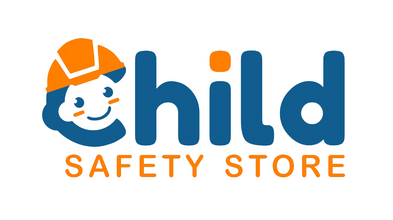
Choking Hazards: How to Prevent Infant Choking
Infant choking is every parent’s worst nightmare. One moment can turn a fun afternoon into a terrifying experience. Fortunately, infant choking is often preventable.
In today’s Child Safety Store blog, let’s take a look at how to keep babies safe from common choking hazards.
What Causes Infant Choking?
No matter how careful parents are, there will always be hazards around the house for a young child. From the sharp corners of furniture to slamming doors, there are plenty of ways for kids to get themselves into trouble. Of course, infant choking is one of the most dangerous.
Believe it or not, food is the most common cause of infant choking. Like all aspects of growing up, eating is a learning experience. Understanding how to chew and swallow food is a learned skill. A little one can become easily distracted and forget to concentrate on eating. That can lead to trouble.
Foreign objects are another choking hazard. As you may know, babies often use their mouths to explore and learn to understand their environment. They don’t have many tools at their disposal, so taste is very important. That makes sense, but it can often lead to them trying to eat some dangerous stuff. When no one is watching, a baby may attempt to swallow small toys and objects that are within their reach.
Eliminating Potential Infant Choking Hazards
It’s not possible for parents to completely eliminate the risk of infant choking. However, there are several easy steps that can be taken to help prevent danger.
Meal Preparation:
- Set up a designated feeding routine for mealtime. Feed your baby in a high chair. It’s easier for a baby to become distracted when lying down or playing.
- Beyond the infant years, children will eat solid food. In this case, cut it up into small, manageable pieces. Children under the age of five shouldn’t be served small, round or hard foods.
Watch Out for Toys and Other Small Objects
- Kids are curious, and they loving putting anything and everything in their mouths. For parents, it helps to “get on their level.” Literally! Crawl on the floor and see what the baby sees. If you see something small and potentially tasty, get rid of it!
- Watch out for magnets, buttons and coins. Really just focus on anything that seems like it might be enticing to a little one. Magnets in particular can be quite dangerous. In the event that a child swallows one, you should seek medical attention immediately.
You can learn more about potential choking hazards from this informative page from the Centers from Disease Control and Prevention. It even includes a list of recommended foods for each age group.
How to Help a Choking Baby?
If the worst has happened, and your baby is choking, it’s time to spring into action.
First of all, the importance of CPR training cannot be stressed enough. This valuable skill can save a life of any age. Every person should be properly certified.
In the specific instance of infant choking, watch this informative video from the British Red Cross:
Saving a choking baby is a terrifying experience. For parents, it requires fast action and clear thinking. Above all, it pays to be prepared. Prevention is always one of the smartest ways to keep your children safe from danger.
